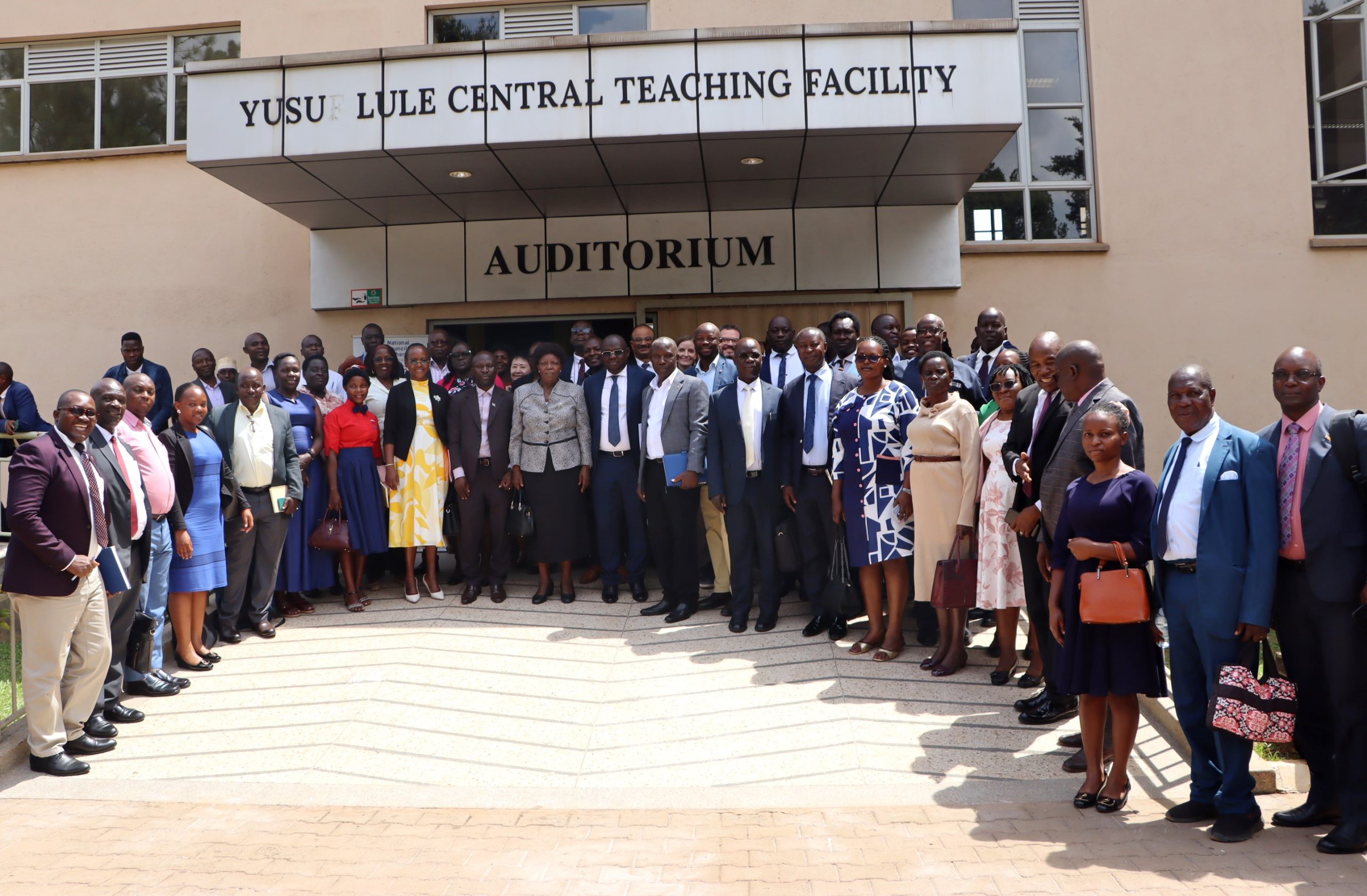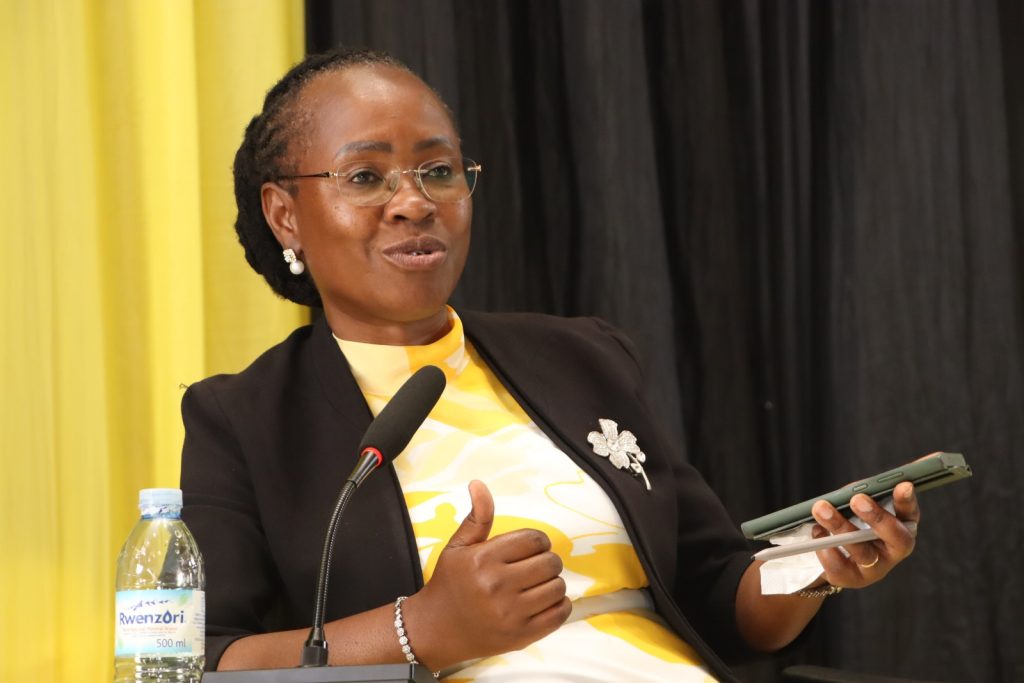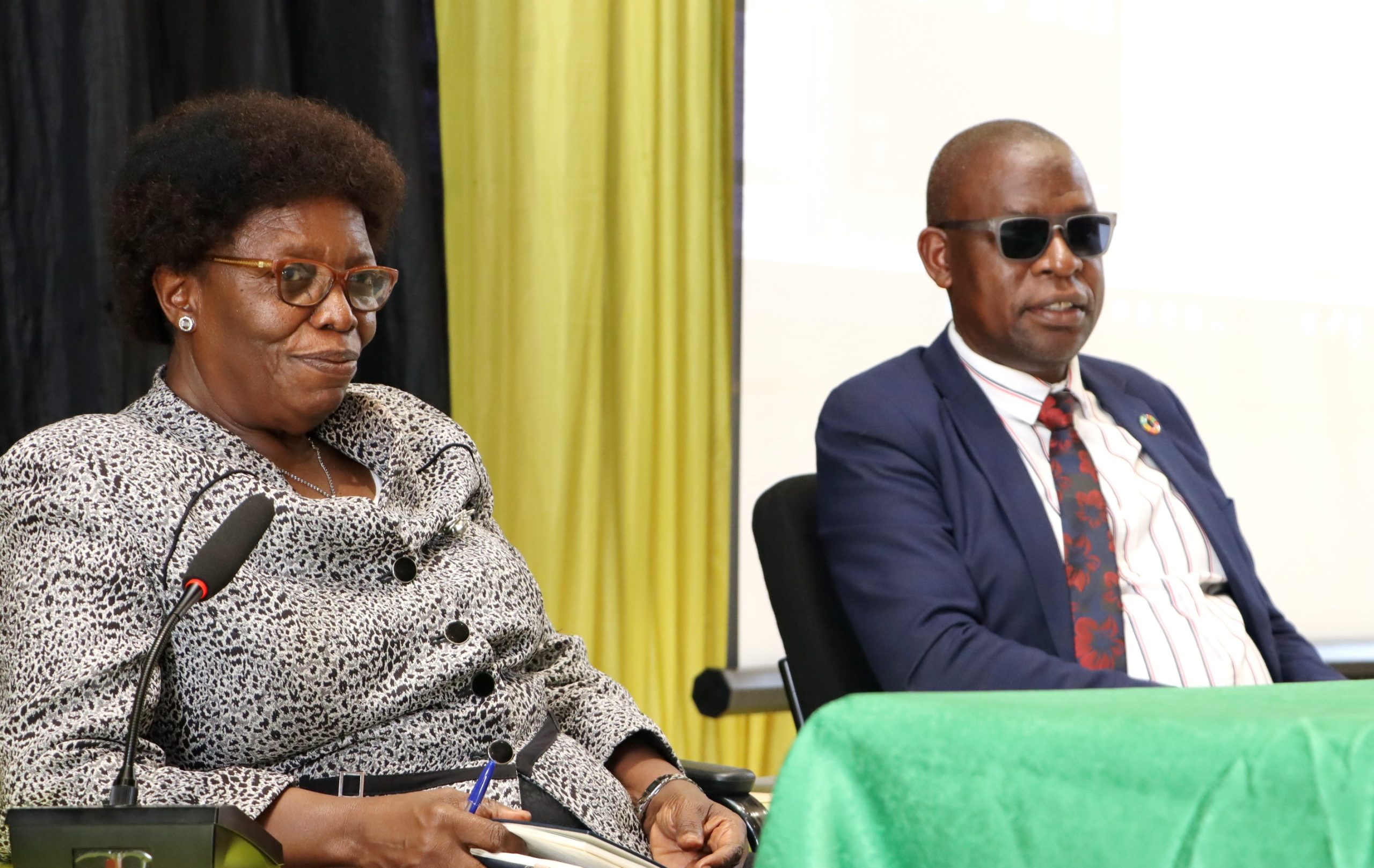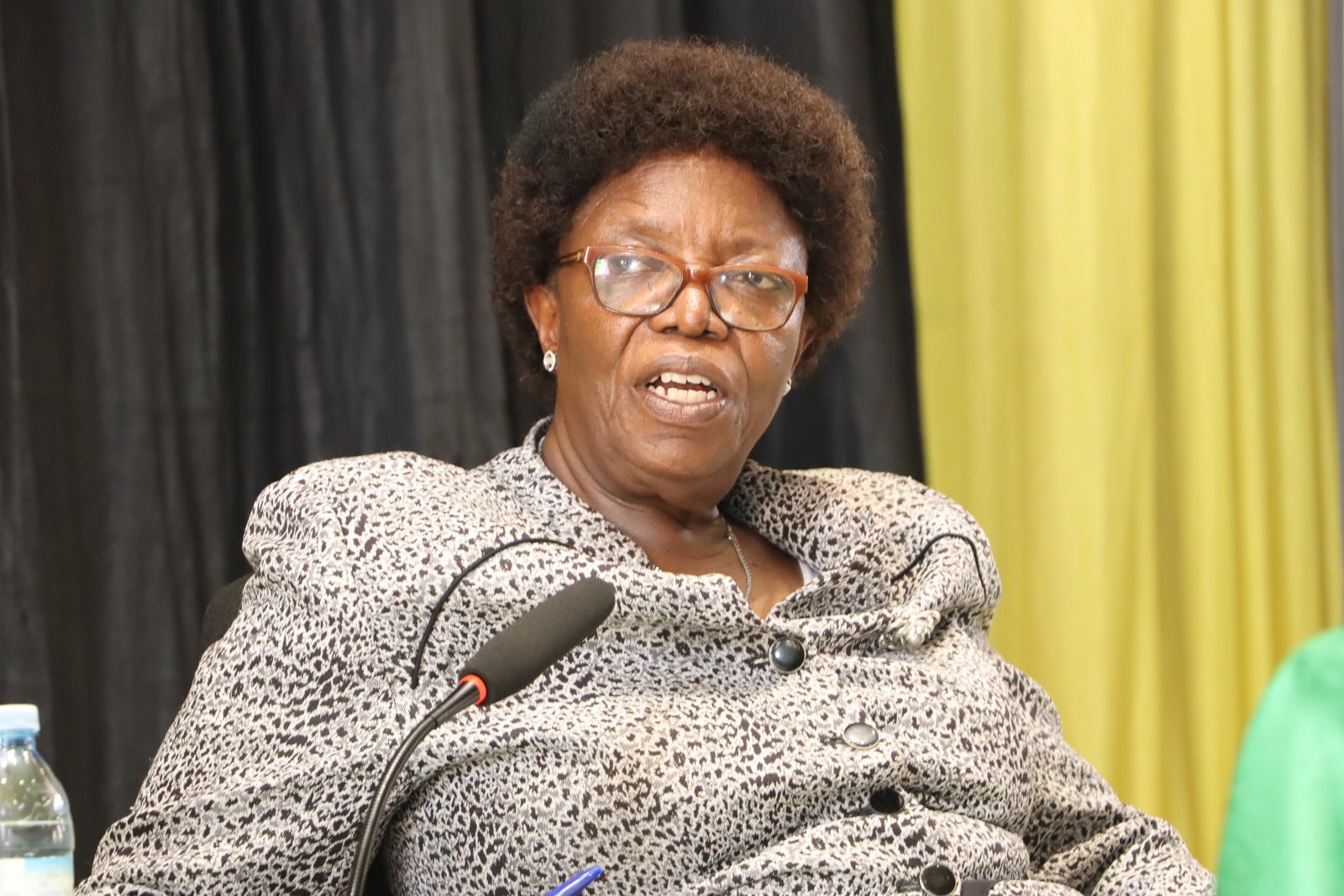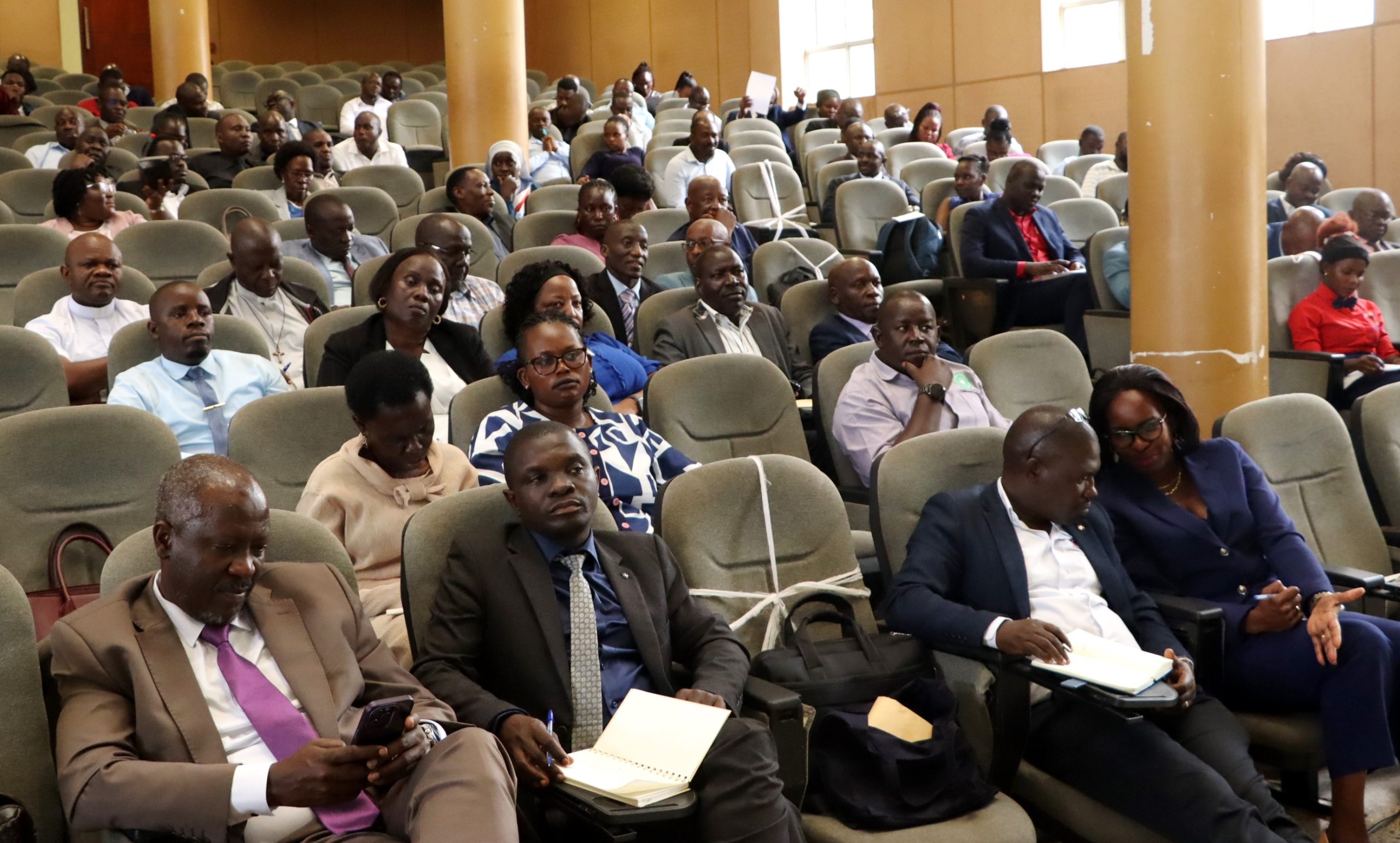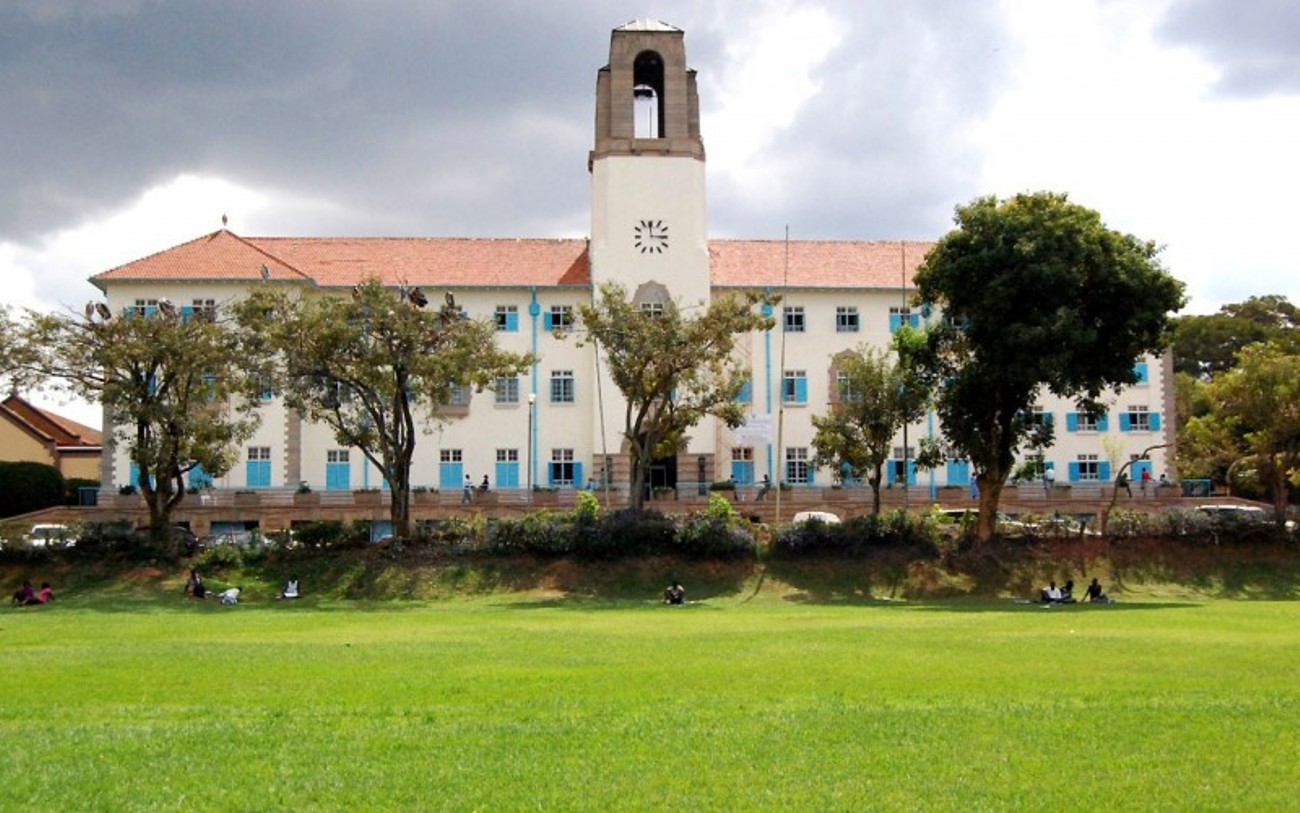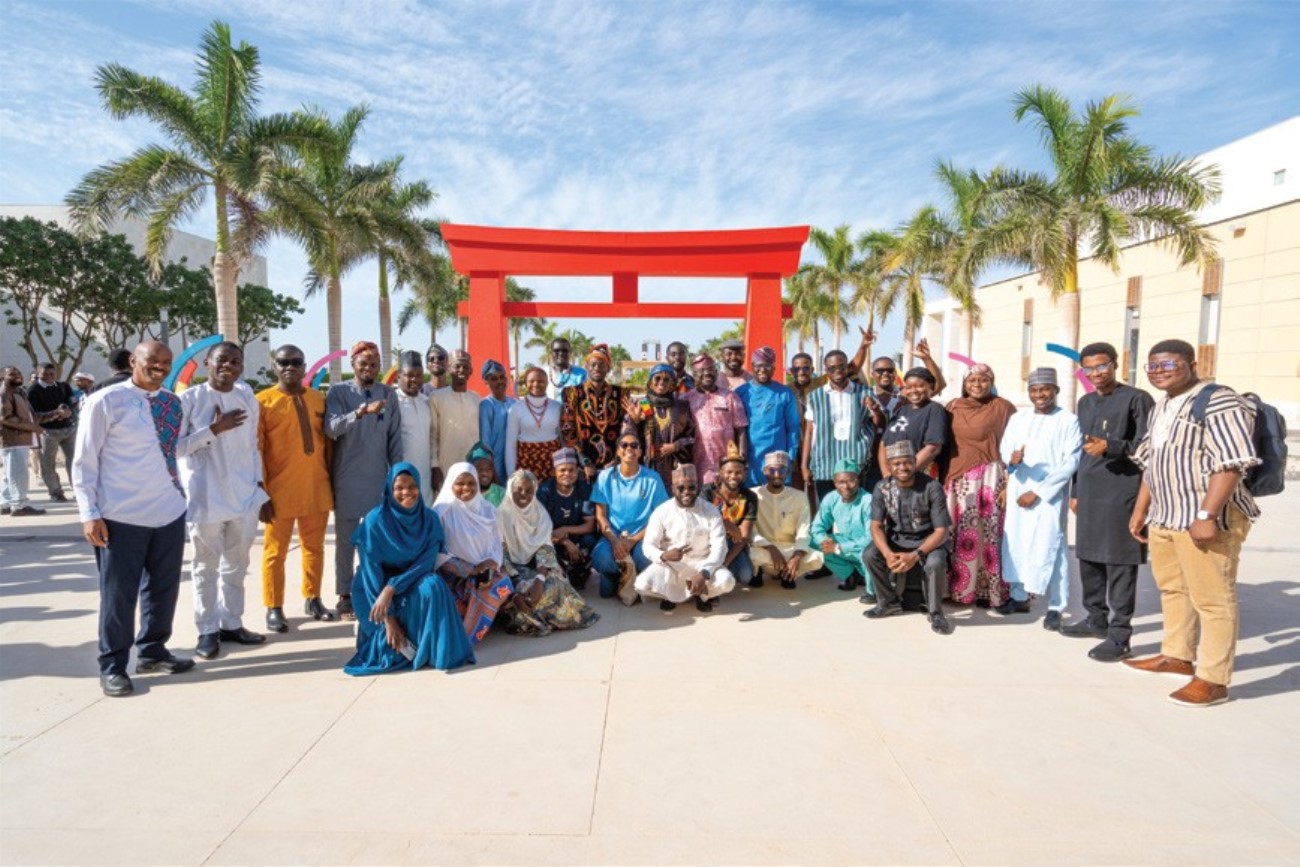The first session of the Pedagogical Skills Training for Makerere University Assistant Lectures has successfully ended with 35 participants from the College of Natural Sciences, College of Computing and Information Sciences, and the College of Business and Management Sciences awarded certificates.
The certificates were handed over to participants by the Deputy Vice Chancellor for Academic Affairs, Dr. Ernest Okello Ogwang; at the closing ceremony of the first session of the training that was held on 25th July 2018 at Telepresence Centre.
Dr. Okello Ogwang congratulated the participants upon finishing the training successfully. He encouraged them to utilize the available training opportunities to increase their knowledge base and widen their understanding.
“Such trainings are good since they improve our networking, skills and experience. Learning is a continuous process. As teachers, it is our own responsibility to expand our knowledge base through learning, teaching and research. the more we learn, the better we become when interacting with our students. Let us build a strong information base that will help us in delivering good services to our clients,” he remarked.

The Pedagogical Skills Training for Makerere University Assistant Lecturers was officially opened on 23rd July 2018, with 35 participants from the College of Natural Sciences, College of Computing and Information Sciences and the College of Business and Management sciences undertaking the first session. The first session ran from 23rd -25th July 2018.
According to the Director Humana Resources- Mr. Andrew Abunyang, the Pedagogical Skills Training is expected to end in March 2019, with over 300, participants trained. “We have restructured this training in a way that, we shall have a session every after two weeks. In each session we expect 35 participants from the selected Colleges to undertake the training for three days,” he explained.
He congratulated the participants upon finishing the training and assured members of the second session that will be starting on 6th August 2018.
On behalf of the participants, Mr Edward Musoke, an Assistant Lecturer at the College of Computing and Information Sciences, appreciated facilitators for the knowledgeable, informative and remarkable training sessions. He thanked Makerere University Management, the Directorate of Human Resources and the College of Education and External Studies for organising the training that has enabled participants realise the need to revise their teaching skills and align them with the current needs of students and society.

“We are grateful for the knowledge and skills we have gained in these three days. The sessions were so informative; we have refreshed our minds to understand our call as teachers. I believe that we have been well equipped with the capacity to take our students through their academic journey in a manner that will help them succeed in their careers. We are very positive that, with this training we are ready to take the University at greater heights and we pledge to take forward the knowledge gained to improve our career and ensure quality education at Institutions of Higher Learning.,” said Mr. Edward Musoke, on behalf of the participants.
The Principle of College of Education and External Studies Prof. Fred Masagaazi Masaazi thanked the Directorate of Human Resources and the College of Education and External Studies for organising training that is ready to equip Lecturers with skills and techniques that will enhance their teaching abilities.
Article by: Racheal Kanyi and Pauline Angom- Volunteers, Public Relations Office
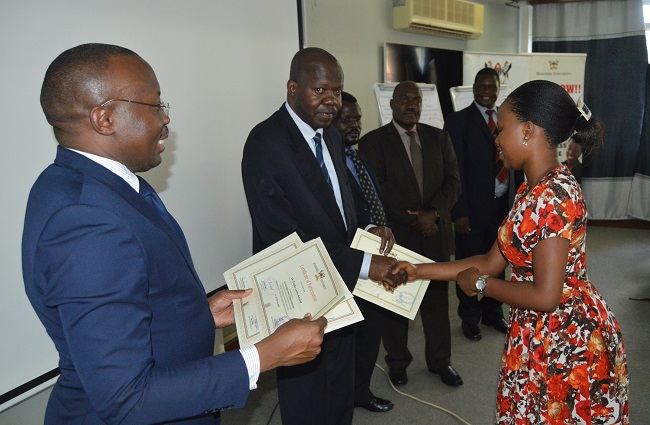

 General6 days ago
General6 days ago
 Health2 weeks ago
Health2 weeks ago
 Innovation6 days ago
Innovation6 days ago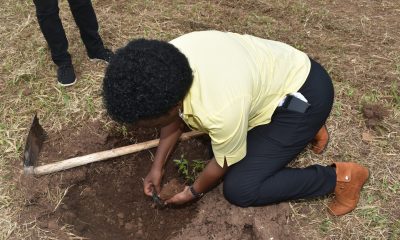
 Agriculture & Environment6 days ago
Agriculture & Environment6 days ago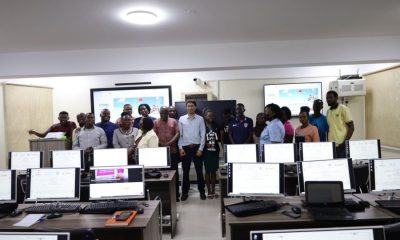
 Computing & IS1 week ago
Computing & IS1 week ago


